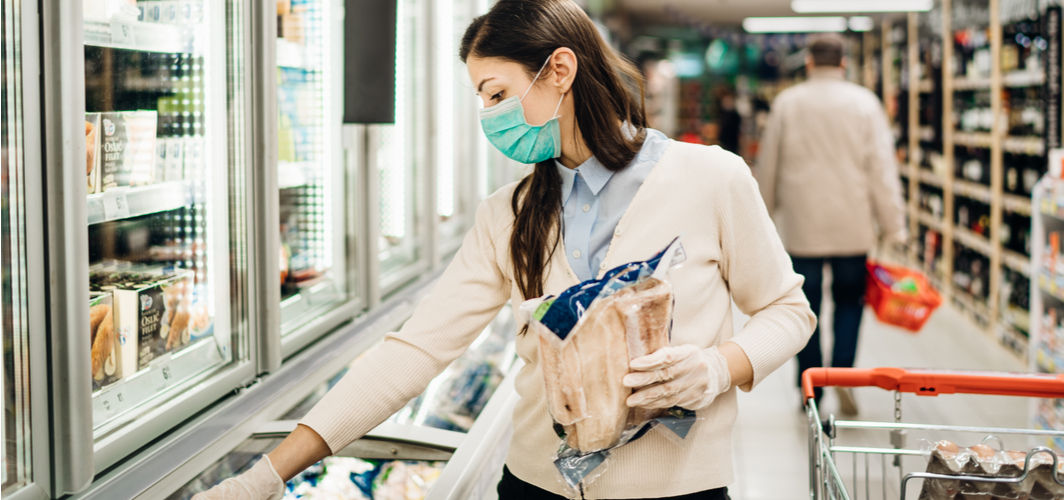Coronavirus Updates
Can Frozen or Refrigerated Food Carry the Coronavirus?
5 min read
By Apollo 24/7, Published on - 26 August 2020, Updated on - 18 October 2022
Share this article
9
20 likes

What does research say about the transmission of Coronavirus through food?
Recommended Read: Does Coronavirus Spread Through Food and Water?
Can frozen or refrigerated food carry the Coronavirus?
Food safety measures while handling frozen or refrigerated foods
- Store raw and cooked food separately: Isolate and store raw foods like uncooked meat and seafood from other foods, as the former could carry other harmful microorganisms. Besides, use separate chopping boards and knives to cut these food items. Clean knives and surfaces with soap and water after every use.
- Store food items in the refrigerator as per date and temperature labels: It is a good practice to store frozen food as per its “use-by” dates and storage temperatures. Also, check any additional storage instructions that are mentioned on the package. Remember to heat food after taking out from the refrigerator and don’t leave frozen food exposed at room temperature for long as bacteria may start growing, which can be harmful to your health.
- Wash Hands: Wash your hands frequently with soap and water for at least 20 seconds after and before handling refrigerated food items. Use alcohol-based sanitisers if handwashing facilities are not available. This simple step will help kill potentially harmful pathogens, including the Coronavirus from your hands.
- Wear a face mask: Wear a face mask and keep your hands away from your mouth, nose, and eyes while handling and preparing food. This step will help eliminate all the potential routes of contamination and infection.
Conclusion
Coronavirus Updates
Leave Comment
Recommended for you

Coronavirus Updates
Can a COVID-19 Self-test Detect the Omicron Variant?
COVID-19 self-test kits can detect infection, irrespective of the variant. The article explores the effectiveness of COVID-19 self-test kits in detecting the Omicron variant.

Coronavirus Updates
Exploring the Impact of COVID-19 on Men’s Health
Research suggests that COVID 19 survivors are at a risk of developing sexual, psychological and cardiovascular health issues. Read to know more.

Coronavirus Updates
World Thyroid Day 2021: The link between thyroid disease and COVID-19
Some studies indicate that people with thyroid disease may be at increased risk of severe COVID-19 outcomes. However, more research is needed to establish this.
Subscribe
Sign up for our free Health Library Daily Newsletter
Get doctor-approved health tips, news, and more.
Visual Stories

Explained: The Highly Transmissible SARS-CoV-2 Variants
Tap to continue exploring
Recommended for you

Coronavirus Updates
Can a COVID-19 Self-test Detect the Omicron Variant?
COVID-19 self-test kits can detect infection, irrespective of the variant. The article explores the effectiveness of COVID-19 self-test kits in detecting the Omicron variant.

Coronavirus Updates
Exploring the Impact of COVID-19 on Men’s Health
Research suggests that COVID 19 survivors are at a risk of developing sexual, psychological and cardiovascular health issues. Read to know more.

Coronavirus Updates
World Thyroid Day 2021: The link between thyroid disease and COVID-19
Some studies indicate that people with thyroid disease may be at increased risk of severe COVID-19 outcomes. However, more research is needed to establish this.